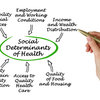0
Report
Community:
May 17, 2023
Researchers at UC Berkeley’s Youth and Allies Against Homelessness, or YAAH, conducted a study to better understand how the COVID-19 pandemic disproportionately affected unhoused youth and their ability to transition out of homelessness and into adulthood. YAAH released a report Wednesday to suggest how to better support this community in the future.
Authored by: UC Berkeley's Youth Allies Against Homelessness for The Daily Californian
Topics: Broadband, COVID-19, Food insecurity, Health, Homelessness, Housing, Low-income, Mental health, Racial inequalities, Youth
 Shared by Sandra Ware
Shared by Sandra Ware
Sandra Ware posted a
on May 25, 2023
UC Berkeley's Youth Allies Against Homelessness for The Daily Californian
Researchers at UC Berkeley’s Youth and Allies Against Homelessness, or YAAH, conducted a study to better understand how the COVID-19 pandemic disproportionately affected unhoused youth and their ability to transition out of homelessness and into adulthood.
0
Report
Community:
Feb 17, 2023
The findings from a Syracuse University study linking universal school meal policies with improved school attendance for young students provides a strong case for expanding free school meals, according to school nutrition and attendance experts.
Authored by: Anna Merod for K-12 DIVE
Topics: Attendance, Early childhood, Education, Food insecurity, Health, Legislation & Policy, Low-income, Nutrition, Youth
 Shared by Sandra Ware
Shared by Sandra Ware
Sandra Ware posted a
on Feb 23, 2023
The findings from a Syracuse University study linking universal school meal policies with improved school attendance for young students provides a strong case for expanding free school meals, according to school nutrition and attendance experts.
0
Video
Community:
Jun 17, 2022
The Low Income Investment Fund (LIIF) will moderate a unique cross-sector panel of housing and early care and education (ECE) experts on strategies and best practices for co-locating ECE facilities within affordable housing developments. Discussion of specific financing techniques and site design considerations from existing co-located facilities will provide attendees lessons on policy and programmatic changes needed to incentivize co-location. Panelists include innovators in affordable housing development, government and public sectors, early care and education operations, and community development finance.
Authored by:
Topics: Advocacy, Broadband, Child welfare, CLPHA, Family engagement, Food insecurity, Health, Housing, Legislation & Policy, Low-income, Nutrition, School-readiness, Supportive housing, Sustainability
 Shared by Karina George
Shared by Karina George
Karina George posted a
on Jun 17, 2022
The Low Income Investment Fund (LIIF) will moderate a unique cross-sector panel of housing and early care and education (ECE) experts on strategies and best practices for co-locating ECE facilities within affordable housing developments.
0
Podcast
Community:
Jan 13, 2021
On a day-to-day basis, vulnerable populations suffer from inequities in health, wealth, and education. These same people are then disproportionately impacted by catastrophes ranging from hurricanes to COVID-19, which only serve to underline the great and urgent need for equity across race, gender, and income. In the latest episode of The Intersect, Madeline Colety and Lorine Giangola discuss how Abt’s housing and resilience work is helping clients promote equity.
Authored by: Madeline Colety & Lorine Giangola for ABT ASSOCIATES
Topics: Advocacy, Community development, Education, Food insecurity, Health, Healthy homes, Homelessness, Housing, Low-income, Partnerships, Racial inequalities
 Shared by Housing Is
Shared by Housing Is
Housing Is posted a
on Jan 14, 2021
Madeline Colety & Lorine Giangola for ABT ASSOCIATES
On a day-to-day basis, vulnerable populations suffer from inequities in health, wealth, and education.
0
Policy Brief
Community:
Dec 4, 2019

In California, more than 3.7 million students were eligible for free or reduced priced school meals in the 2017-2018 school year. For many of those students, school meals are the primary source of regular access to healthy food. When the bell rings at 3:00 or lets out for summer break, many of those students go home to nutritional uncertainty or high-calorie, low-nutrient foods.
For many low-income families, the out-of-school-time food access gap increases family stress: limited budgets are stretched further to cover food, rent, utilities, transportation, medications, and chidcare costs. For very young children, food insecurity can negatively impact brain and physical development. For children of all ages, disrupted access to healthy food can impact behavior, increase risk of obesity, make it harder to concentrate, or exacerbate existing healthy conditions like type 2 diabetes. The impact is not limited to summer, and can lead to a rocky start to the school year, negatively impacting school attendance and students’ ability to effectively participate in school.
Read the full brief to learn how public and affordable housing communities can address food insecurity for children and youth with the help of out-of-school-time USDA child nutrition programs.
Authored by:
Topics: Advocacy, Early childhood, Food insecurity, Health, Healthy homes, Housing, Legislation & Policy, Low-income, Nutrition, Out-of-school time, West Coast, Youth
 Shared by Linda Lu
Shared by Linda Lu
Linda Lu posted a
on Dec 4, 2019
In California, more than 3.7 million students were eligible for free or reduced priced school meals in the 2017-2018 school year. For many of those students, school meals are the primary source of regular access to healthy food.
0
Publication
Community:
This paper analyzes why SNAP benefits are inadequate, reviews the body of research showing positive effects from more adequate SNAP benefits, and offers key policy solutions to improve benefit adequacy.
Authored by: Food Research & Action Center (FRAC)
Topics: Food insecurity, Health, Legislation & Policy, Low-income, Nutrition, Research
 Shared by Housing Is
Shared by Housing Is
Housing Is posted a
on Jun 11, 2019
Food Research & Action Center (FRAC)
This paper analyzes why SNAP benefits are inadequate, reviews the body of research showing positive effects from more adequate SNAP benefits, and offers key policy solutions to improve benefit adequacy.
0
News Article
Community:
Jun 5, 2019
Patients are dealing with stress related to the social determinants of health, including stable housing, food security, and adequate transportation.
Authored by: Jessica Kent for Health IT Analytics
Topics: Food insecurity, Health, Housing, Low-income, Nutrition, Transportation
 Shared by Housing Is
Shared by Housing Is
Housing Is posted a
on Jun 11, 2019
Jessica Kent for Health IT Analytics
Patients are dealing with stress related to the social determinants of health, including stable housing, food security, and adequate transportation.
0
Report
Community:
May 1, 2019
Protecting and improving the health of pregnant and postpartum women, infants, and young children is critically important. Those eligible for WIC — and frequently their communities and the nation — are facing levels of poverty, food insecurity, inadequate dietary intake, obesity, and ill health that are far too
high. Research shows that WIC can help to alleviate these problems for children, mothers, and their families, and improve overall health and well-being. Yet the program is reaching far too few eligible people: only 3 out of 5. Increasing access to and strengthening WIC is essential to improving nutrition and reducing health disparities in this nation.
Authored by: Food Research & Action Center (FRAC)
Topics: Early childhood, Family engagement, Food insecurity, Funding, Health, Legislation & Policy, Low-income
 Shared by Housing Is
Shared by Housing Is
Housing Is posted a
on Jun 3, 2019
Food Research & Action Center (FRAC)
Protecting and improving the health of pregnant and postpartum women, infants, and young children is critically important.
0
News Article
Community:
May 1, 2019
The U.S. economy is enjoying nearly a decade of expansion since the Great Recession. Yet food insecurity -- a lack of money or resources to secure enough to eat -- still grips almost one in eight Americans. That's roughly 40 million people. While slowly improving, that figure remains stubbornly higher than before the recession, when more than one in 10 U.S. residents had difficulty knowing when and how they might eat next, according to data from the U.S. Department of Agriculture.
Authored by: Rachel Layne for CBS News
Topics: Food insecurity, Health, Low-income, Nutrition
 Shared by Housing Is
Shared by Housing Is
Housing Is posted a
on May 6, 2019
Rachel Layne for CBS News
The U.S. economy is enjoying nearly a decade of expansion since the Great Recession. Yet food insecurity -- a lack of money or resources to secure enough to eat -- still grips almost one in eight Americans. That's roughly 40 million people.
0
Publication
Community:
Apr 24, 2019
Are you a Pennsylvanian without a high school diploma? Then sign up with AmeriHealth Caritas for Medicaid and the plan will help you get your GED. Having trouble getting a job in Ohio? If you are enrolled in CareSource, the Life Services JobConnect in CareSource’s managed care organization (MCO) will arrange job coaching and other employment services at no cost. These are not examples of corporate philanthropy. Rather, they reflect a growing recognition in the health care sector, especially among managed care organizations, that good health—and achieving lower medical costs—requires a focus on the nonmedical factors known as social determinants that affect health and well-being.
Authored by: Stuart Butler for news@Jama
Topics: Education, Food insecurity, Health, Housing, Low-income, Nutrition, Research
 Shared by Housing Is
Shared by Housing Is
Housing Is posted a
on Apr 25, 2019
Stuart Butler for news@Jama
Are you a Pennsylvanian without a high school diploma? Then sign up with AmeriHealth Caritas for Medicaid and the plan will help you get your GED. Having trouble getting a job in Ohio?
1
Publication
Community:
Apr 8, 2019
In 2015, the Supplemental Nutrition Assistance Program (SNAP) prevented 8.4 million people from living in poverty. This essential and effective safety net program helps people with low incomes purchase food for themselves and their families—an estimated 40.8 million Americans were living in poverty in 2015; absent SNAP benefits, that number would have been 49.1 million. Despite its success, SNAP is facing rule changes that would cause people to lose benefits—harming those who need it most and weakening the poverty-fighting power of the program.
Authored by: Anthony Barrows for Ideas 42
Topics: Food insecurity, Health, Legislation & Policy, Low-income, Nutrition
 Shared by Mica O'Brien
Shared by Mica O'Brien
Mica O'Brien posted a
on Apr 18, 2019
Anthony Barrows for Ideas 42
In 2015, the Supplemental Nutrition Assistance Program (SNAP) prevented 8.4 million people from living in poverty.
0
News Article
Community:
Feb 28, 2019
Child poverty in the U.S. could be cut in half over the next 10 years with a few simple steps, according to a new report from the National Academies of Sciences, Engineering and Medicine. The cost would be high — at least $90 billion a year. But the National Academies report warns that the price of not doing anything would be far greater.
Authored by: Pam Fessler for NPR
Topics: Child welfare, Criminal justice, Early childhood, Education, Food insecurity, Funding, Health, Immigrants, Legislation & Policy, Low-income, Nutrition, Racial inequalities
 Shared by Housing Is
Shared by Housing Is
Housing Is posted a
on Mar 12, 2019
Child poverty in the U.S. could be cut in half over the next 10 years with a few simple steps, according to a new report from the National Academies of Sciences, Engineering and Medicine. The cost would be high — at least $90 billion a year.
0
Report
Community:
Welcome to the Food Research & Action Center’s winter issue of ResearchWire. This quarterly newsletter focuses on the latest research, reports, and resources from government agencies, academic researchers, think tanks, and elsewhere at the intersection of food insecurity, poverty, the federal nutrition programs, and health.
Authored by: Food Research & Action Center (FRAC)
Topics: Child welfare, Food insecurity, Funding, Health, Legislation & Policy, Low-income, Nutrition, Research, Youth
 Shared by Mica O'Brien
Shared by Mica O'Brien
Mica O'Brien posted a
on Feb 28, 2019
Food Research & Action Center (FRAC)
Welcome to the Food Research & Action Center’s winter issue of ResearchWire.
0
Video
Community:
Feb 20, 2019
With the active support of their residents, HABG converted a 34-passenger bus donated by Warren County Public Schools. The new mobile grocery store will offer fresh fruits and vegetables to families who currently live in a 'food desert' where the cost of eating healthy can be beyond their reach.
HAGB's new mobile grocery store will visit public housing developments and other low-income neighborhoods in Bowling Green to help residents lower their food costs by offering affordable groceries, including fresh produce grown at HAGB. More than 90 residents were surveyed and almost everyone said they would use the mobile grocery store at least once weekly.
Authored by: Housing Authority of Bowling Green
Topics: Food insecurity, Health, Housing, Low-income, Nutrition, Place-based
 Shared by Housing Is
Shared by Housing Is
Housing Is posted a
on Feb 28, 2019
Housing Authority of Bowling Green
With the active support of their residents, HABG converted a 34-passenger bus donated by Warren County Public Schools.
0
Case study
Community:
The Addressing Healthcare’s Blindside in Albuquerque’s South Side (AHBASS) collaborative participated in the BUILD Health Challenge’s first cohort with the intention of “making the healthy choice, the easy choice” for community members. Now you can learn about their strategies, approaches, application of the BUILD principles, and outcomes in this new case study documenting their work. Follow along in this case study and see how this Albuquerque, NM, based team addressed chronic disease and self-management in their community. Together, they established a multi-sector collaboration that resulted in a referral tracking system and a Mobile Farmers Market. In addition, the team implemented the Healthy Here Wellness Referral Center, an integrated chronic disease management referral system to link clinics to community resources in order to improve health outcomes.
Authored by: The BUILD Health Challenge
Topics: Data sharing, Food insecurity, Health, Low-income, Nutrition, Partnerships
 Shared by Mica O'Brien
Shared by Mica O'Brien
Mica O'Brien posted a
on Feb 20, 2019
The BUILD Health Challenge
The Addressing Healthcare’s Blindside in Albuquerque’s South Side (AHBASS) collaborative participated in the BUILD Health Challenge’s first cohort with the intention of “making the healthy choice, the easy choice” for community members.
0
Report
Community:
Feb 13, 2019
More low-income children across the country are getting the nutrition they need to learn and thrive through the School Breakfast Program, according to the annual School Breakfast Scorecard, released by the Food Research & Action Center (FRAC).
Authored by: Food Research & Action Center (FRAC)
Topics: Child welfare, Food insecurity, Health, Low-income, Nutrition
 Shared by Housing Is
Shared by Housing Is
Housing Is posted a
on Feb 14, 2019
Food Research & Action Center (FRAC)
More low-income children across the country are getting the nutrition they need to learn and thrive through the School Breakfast Program, according to the annual School Breakfast Scorecard, released by the Food Research & Action Center (FRAC).
0
Policy Brief
Community:
Jan 30, 2019
Under the continuing resolution (CR) that provided the funding to reopen the government for three weeks, SNAP (food stamps) now is fully funded at least through March, even if the government shuts down again on February 15. Millions of families, however, face a longer-than-usual gap between their February and March benefits because the Agriculture Department worked with states to issue February benefits early during the shutdown, and that could further strain household budgets, the emergency food network, and other community resources.
Authored by: Dottie Rensbaum for The Center on Budget and Policy Priorities
Topics: Food insecurity, Funding, Health, Legislation & Policy, Low-income, Nutrition
 Shared by Mica O'Brien
Shared by Mica O'Brien
Mica O'Brien posted a
on Jan 30, 2019
Dottie Rensbaum for The Center on Budget and Policy Priorities
Under the continuing resolution (CR) that provided the funding to reopen the government for three weeks, SNAP (food stamps) now is fully funded at least through March, even if the government shuts down again on February 15.
0
News Article
Community:
Jan 25, 2019
A whole host of factors — such as friends, housing and transportation — affect a person’s health and how much they need the social safety net. It’s time the government’s big health insurance programs took this reality into account, some lawmakers and policymakers are starting to argue.
Authored by: Paige Winfield Cunningham for The Washington Post
Topics: Asset building, Cost effectiveness, Disabilities, Education, Food insecurity, Funding, Health, Homelessness, Housing, Legislation & Policy, Low-income, Medicaid / Medicare, Seniors, Transportation, Workforce development
 Shared by Housing Is
Shared by Housing Is
Housing Is posted a
on Jan 25, 2019
Paige Winfield Cunningham for The Washington Post
A whole host of factors — such as friends, housing and transportation — affect a person’s health and how much they need the social safety net. It’s time the government’s big health insurance programs took this reality into account, some lawmakers and policymakers are starting to argue.
0
Publication
Community:
Sep 1, 2018
The firearm, obesity, and opioid epidemics are among the most important public health crises of our time. Each epidemic has a complex etiology that challenges efforts at mitigation. From this, a central question arises for researchers, clinicians, and policymakers: How can we identify what matters most within a broad range of causal factors in these epidemics, and can we draw cross-epidemic inferences that will help inform our thinking?
Authored by: Sandro Galea for Milbank Memorial Fund
Topics: Food insecurity, Health, Low-income, Nutrition, Obesity, Partnerships, Safety, Substance abuse
 Shared by Mica O'Brien
Shared by Mica O'Brien
Mica O'Brien posted a
on Jan 24, 2019
Sandro Galea for Milbank Memorial Fund
The firearm, obesity, and opioid epidemics are among the most important public health crises of our time. Each epidemic has a complex etiology that challenges efforts at mitigation.
0
Publication
Community:
Jan 24, 2019
Affordable housing campaigns are not new, of course, but what is unprecedented and transformative about Opportunity Starts at Home is the scope and diversity of the partners that are joining forces to advocate for more robust and equitable federal housing policies. The campaign is advised by a Steering Committee including leading national organizations representing a wide range of interests that are working shoulder-to-shoulder to solve the affordable housing crisis.
Authored by: Opportunity Starts at Home
Topics: Asset building, Child welfare, CLPHA, Community development, Early childhood, Education, Food insecurity, Funding, Health, Homelessness, Housing, Immigrants, Legislation & Policy, Low-income, Mobility, Out-of-school time, Partnerships, Racial inequalities, Safety, Seniors, Stability, Substance abuse, Youth
 Shared by Mica O'Brien
Shared by Mica O'Brien
Mica O'Brien posted a
on Jan 24, 2019
Opportunity Starts at Home
Affordable housing campaigns are not new, of course, but what is unprecedented and transformative about Opportunity Starts at Home is the scope and diversity of the partners that are joining forces to advocate for more robust and equitable federal housing policies.
0
Report
Community:
Jan 7, 2019
When the school day ends, far too many children return home to empty refrigerators and bare cupboards. The federal Afterschool Nutrition Programs provide healthy meals and snacks to children to ensure they are fed after school (and on weekends and during school holidays). According to FRAC’s latest Afterschool Suppers: A Snapshot of Participation report, the District of Columbia had the highest participation in the nation of children in the Afterschool Supper Program, with a 31.6 percent increase in participation between October 2016 and October 2017.
Authored by: Paige Pokorney for Food Research and Action Center (FRAC)
Topics: Child welfare, East Coast, Education, Food insecurity, Health, Low-income, Nutrition, Out-of-school time
 Shared by Housing Is
Shared by Housing Is
Housing Is posted a
on Jan 16, 2019
Paige Pokorney for Food Research and Action Center (FRAC)
When the school day ends, far too many children return home to empty refrigerators and bare cupboards. The federal Afterschool Nutrition Programs provide healthy meals and snacks to children to ensure they are fed after school (and on weekends and during school holidays).
0
News Article
Community:
Jan 8, 2019
Massachusetts Attorney General Maura Healey on Tuesday announced $3 million in grants to 13 community organizations that address things like housing, hunger and other societal factors that affect someone’s health.
Authored by: Shira Schoenberg for Mass Live
Topics: East Coast, Food insecurity, Health, Housing, Low-income, Nutrition, Partnerships, Preventative care
 Shared by Housing Is
Shared by Housing Is
Housing Is posted a
on Jan 16, 2019
Shira Schoenberg for Mass Live
Massachusetts Attorney General Maura Healey on Tuesday announced $3 million in grants to 13 community organizations that address things like housing, hunger and other societal factors that affect someone’s health.
0
News Article
Community:
Jan 6, 2019
These programs, available at 10 Wichita middle and high schools so far, include extended serving times in cafeterias, grab-and-go breakfasts from carts or kiosks, and “second-chance breakfast,” in which students are offered breakfast after homeroom or first period.
Authored by: Suzanne Perez Tobias for The Wichita Eagle
Topics: Child welfare, Education, Food insecurity, Health, Low-income, Midwest, Nutrition, Youth
 Shared by Housing Is
Shared by Housing Is
Housing Is posted a
on Jan 16, 2019
Suzanne Perez Tobias for The Wichita Eagle
These programs, available at 10 Wichita middle and high schools so far, include extended serving times in cafeterias, grab-and-go breakfasts from carts or kiosks, and “second-chance breakfast,” in which students are offered breakfast after homeroom or first period.
0
News Article
Community:
Jan 10, 2019
The federally funded School Breakfast Program is critical to addressing childhood hunger and food insecurity. While most schools participate in the program, many students are reluctant to eat breakfast in the cafeteria before school starts — the traditional service delivery model for school breakfast. To combat this, four of the top organizations in education, food insecurity and school nutrition came together to form Partners for Breakfast in the Classroom, with the support of the Walmart Foundation. The Partners, which include FRAC, the School Nutrition Foundation, the NEA Foundation and the National Association of Elementary School Principals, are working to address barriers to school breakfast consumption through an innovative solution: serving breakfast in the classroom.
Authored by: Etienne Melcher Pilbin for Medium
Topics: Child welfare, Education, Food insecurity, Health, Low-income, Nutrition
 Shared by Housing Is
Shared by Housing Is
Housing Is posted a
on Jan 16, 2019
Etienne Melcher Pilbin for Medium
The federally funded School Breakfast Program is critical to addressing childhood hunger and food insecurity.
0
Report
Community:
Jan 10, 2019
There isn't federal data on food insecurity among college students nationally, so the GAO reviewed 31 studies on the topic, showing that most concluded that over a third of college students don't always have enough to eat.
Authored by: Elissa Nadworny and Clare Lombardo for NPR
Topics: Education, Food insecurity, Health, Legislation & Policy, Low-income, Nutrition, Post-secondary, Research, Youth
 Shared by Housing Is
Shared by Housing Is
Housing Is posted a
on Jan 16, 2019
Elissa Nadworny and Clare Lombardo for NPR
There isn't federal data on food insecurity among college students nationally, so the GAO reviewed 31 studies on the topic, showing that most concluded that over a third of college students don't always have enough to eat.


 Shared by Sandra Ware
on May 25, 2023
Shared by Sandra Ware
on May 25, 2023


 Shared by Sandra Ware
on Feb 23, 2023
Shared by Sandra Ware
on Feb 23, 2023

 Shared by Karina George
on Jun 17, 2022
Shared by Karina George
on Jun 17, 2022

 Shared by Housing Is
on Jan 14, 2021
Shared by Housing Is
on Jan 14, 2021


 Shared by Linda Lu
on Dec 4, 2019
Shared by Linda Lu
on Dec 4, 2019


 Shared by Housing Is
on Jun 11, 2019
Shared by Housing Is
on Jun 11, 2019


 Shared by Housing Is
on Jun 11, 2019
Shared by Housing Is
on Jun 11, 2019

 Shared by Housing Is
on Jun 3, 2019
Shared by Housing Is
on Jun 3, 2019
 Shared by Housing Is
on May 6, 2019
Shared by Housing Is
on May 6, 2019

 Shared by Housing Is
on Apr 25, 2019
Shared by Housing Is
on Apr 25, 2019



 Shared by Housing Is
on Mar 12, 2019
Shared by Housing Is
on Mar 12, 2019
 Shared by Housing Is
on Feb 28, 2019
Shared by Housing Is
on Feb 28, 2019
 Shared by Housing Is
on Feb 14, 2019
Shared by Housing Is
on Feb 14, 2019
 Shared by Housing Is
on Jan 25, 2019
Shared by Housing Is
on Jan 25, 2019

 Shared by Housing Is
on Jan 16, 2019
Shared by Housing Is
on Jan 16, 2019

 Shared by Housing Is
on Jan 16, 2019
Shared by Housing Is
on Jan 16, 2019

 Shared by Housing Is
on Jan 16, 2019
Shared by Housing Is
on Jan 16, 2019

 Shared by Housing Is
on Jan 16, 2019
Shared by Housing Is
on Jan 16, 2019

 Shared by Housing Is
on Jan 16, 2019
Shared by Housing Is
on Jan 16, 2019
